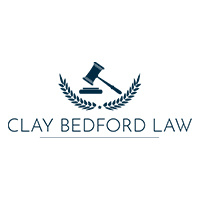Pioneer RICO Act Lawyer, California
Sponsored Law Firm
-
 x
x

Click For More Info:
-
The Law Offices of Richard L. Cooper, P.A.
848 Brickell Avenue Suite 800 Miami, FL 33131» view mapDWI/DUI, Drug Trafficking, Felony Nationally Ranked Top 40 Under 40
With Richard L. Cooper you can expect a trusted confidant who will work diligently to fully understand your case and determine a road map to help you regain control of your life.
800-756-2781
Not enough matches for Pioneer RICO Act lawyer.
Below are all Pioneer Criminal lawyers.
Clay Bedford
✓ VERIFIEDCriminal, DUI-DWI, Misdemeanor, Felony, Traffic
I am an attorney licensed to practice law in the State of California. My practice is limited to criminal defense and juvenile cases. The criminal... (more)
Rachel Dawn Miller
Criminal, Traffic, Juvenile Law, Administrative Law
Status: In Good Standing Licensed: 22 Years
FREE CONSULTATION
CONTACTJames Stillman Clark
Car Accident, Government, Criminal, Firearms, Mass Torts
Status: In Good Standing Licensed: 45 Years
Stephen Alfred Tapson
Power of Attorney, Criminal, Consumer Rights, Business
Status: In Good Standing Licensed: 53 Years
David Keith Singer
Criminal, Consumer Rights, Civil Rights, Medical Malpractice
Status: In Good Standing Licensed: 19 Years

 Richard L. Cooper Miami, FL
Richard L. Cooper Miami, FL AboutMiami Attorney at Law
AboutMiami Attorney at Law ServicesCriminal Defense
ServicesCriminal Defense

